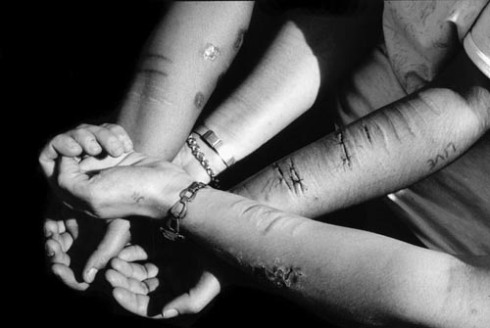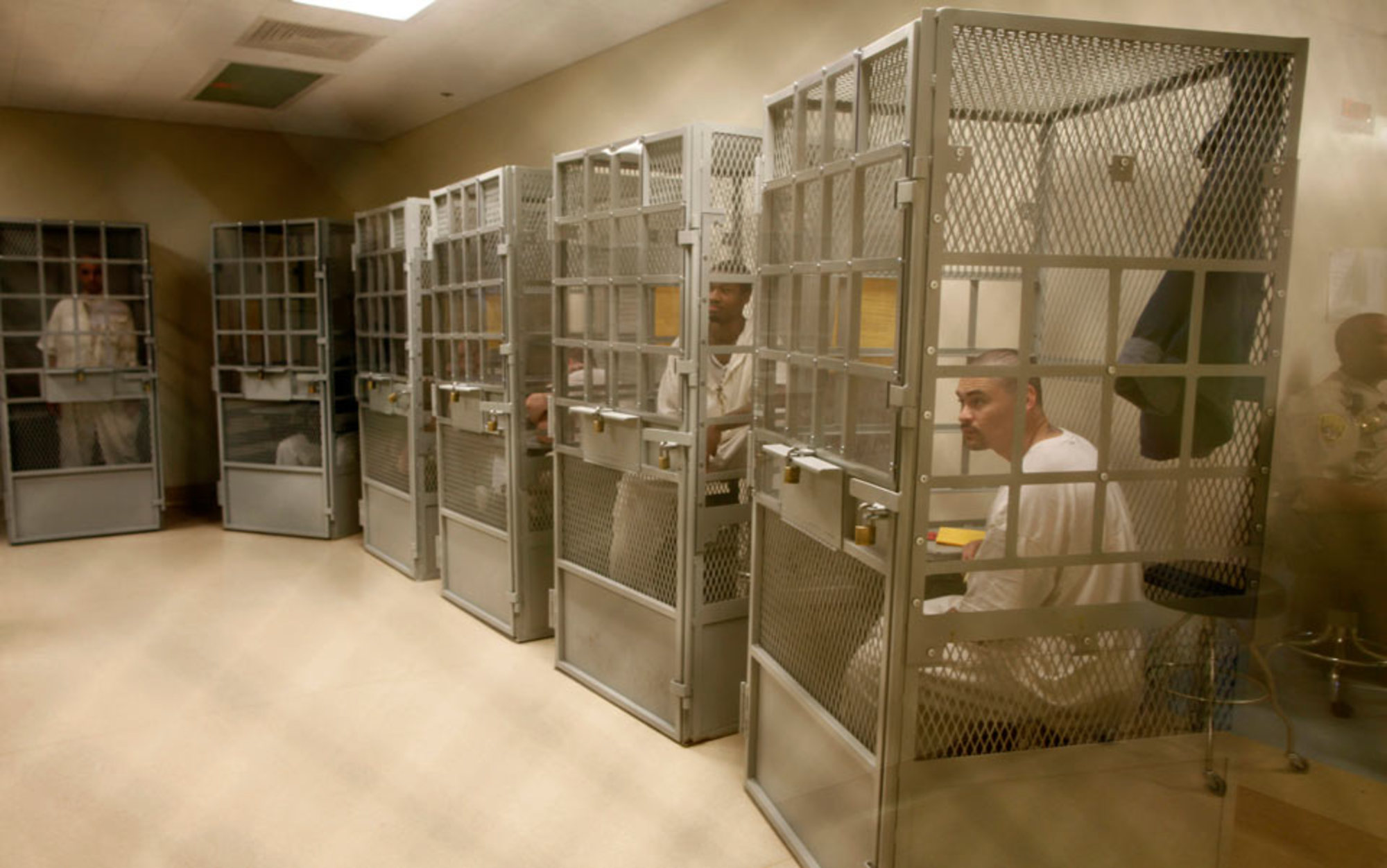How solitary confinement affects the brain
US President Barack Obama issued a decree that prohibits the solitary confinement of minors in a federal prison and limits the days that adult prisoners will spend in prison. The reason was the demands of activists and the results of studies that show the changes occurring in the human brain, including the cessation of the growth of cells necessary for the formation of memories.
In his article for The Washington Post, Obama spoke about Caliph Browder, who in 2010 at the age of 16 was accused of stealing a backpack. Kalifa was sent to prison to wait for a court decision, where he spent almost two years in solitary confinement, and the rest of the time he was subjected to violence by guards and other prisoners. His guilt was not proven, he went out and continued his studies, but at 22 he committed suicide.
Under the cut - a few problems that a person will face if they spend 23 hours a day alone.
')

Caliph Browder
About 5% of prisoners in the United States sit in solitary confinement, while 50% of all suicides occur in them, according to a study by psychiatrist Terry Coopers . In 2012, the US Department of Justice published a study on which half the suicides of minors occurred while in solitary confinement. The effect of isolation upon release from prison remains, as the example of Caliph Browder shows.
Already in the XIX century, facts were published about self-harm in prisons. In the XX century, the situation has not changed. Sometimes prisoners try to prove to themselves in such a way that they are still alive.

Rally against solitary confinement
Isolation causes the mind to see things that are not there and get hung up on imaginary situations. For example, one prisoner was constantly convinced that his bladder was full and tried to get rid of this sensation all day. Isolated prisoners are dangerous primarily for themselves - they are engaged in self-mutilation more often than others.

Shot from the women's prison in Czechoslovakia
Isolation in prison causes stress, which blocks the formation of neurons necessary for the development of the human brain and memory. This problem is especially true for people under the age of eighteen, whose brains quickly form and grow.
There are studies showing that isolation stops the growth of brain cells that control emotions and translate thoughts into actions.

Group Therapy in California Prison
A minor boy named Kenny in 2013 spent three out of six months in solitary confinement. During this time, he wrote in a milk bag and threw them at the guard. Later in an interview he talked about his behavior: “I don’t really like it. I am a good person. This place spoiled me. I thought I would end up killing someone. ” The prisoner could not control the behavior, because he did not understand the responsibility for his actions.

The prisoner describes the hallucinations experienced after eating bath salts
In the 19th century, Charles Dickens visited a prison with 16 solitary cells in Philadelphia, which was built by reformers led by Benjamin Franklin in 1790, and wrote: "I am sure that this is cruel and wrong."
In his article for The Washington Post, Obama spoke about Caliph Browder, who in 2010 at the age of 16 was accused of stealing a backpack. Kalifa was sent to prison to wait for a court decision, where he spent almost two years in solitary confinement, and the rest of the time he was subjected to violence by guards and other prisoners. His guilt was not proven, he went out and continued his studies, but at 22 he committed suicide.
Under the cut - a few problems that a person will face if they spend 23 hours a day alone.
')

Caliph Browder
Risk of suicide
About 5% of prisoners in the United States sit in solitary confinement, while 50% of all suicides occur in them, according to a study by psychiatrist Terry Coopers . In 2012, the US Department of Justice published a study on which half the suicides of minors occurred while in solitary confinement. The effect of isolation upon release from prison remains, as the example of Caliph Browder shows.
Already in the XIX century, facts were published about self-harm in prisons. In the XX century, the situation has not changed. Sometimes prisoners try to prove to themselves in such a way that they are still alive.

Rally against solitary confinement
Hallucinations and delusions
Isolation causes the mind to see things that are not there and get hung up on imaginary situations. For example, one prisoner was constantly convinced that his bladder was full and tried to get rid of this sensation all day. Isolated prisoners are dangerous primarily for themselves - they are engaged in self-mutilation more often than others.

Shot from the women's prison in Czechoslovakia
Anxiety, stress and memory loss
Isolation in prison causes stress, which blocks the formation of neurons necessary for the development of the human brain and memory. This problem is especially true for people under the age of eighteen, whose brains quickly form and grow.
There are studies showing that isolation stops the growth of brain cells that control emotions and translate thoughts into actions.

Group Therapy in California Prison
Self-Control Disorders
A minor boy named Kenny in 2013 spent three out of six months in solitary confinement. During this time, he wrote in a milk bag and threw them at the guard. Later in an interview he talked about his behavior: “I don’t really like it. I am a good person. This place spoiled me. I thought I would end up killing someone. ” The prisoner could not control the behavior, because he did not understand the responsibility for his actions.

The prisoner describes the hallucinations experienced after eating bath salts
In the 19th century, Charles Dickens visited a prison with 16 solitary cells in Philadelphia, which was built by reformers led by Benjamin Franklin in 1790, and wrote: "I am sure that this is cruel and wrong."
Source: https://habr.com/ru/post/371687/
All Articles